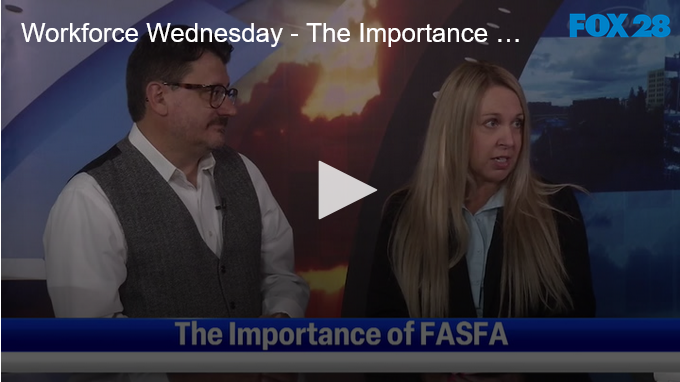
Pursuing a college education can be a dream come true for many individuals, but the cost can often be a significant hurdle. Fortunately, there are resources available to help make higher education more affordable, and one of the most valuable tools is the Free Application for Federal Student Aid (FAFSA). The Next Generation Zone can help you simplify the application process through a weekly workshop held every Thursday at 11:00 a.m. at their young adult one-stop career and education center. More details are provided at the bottom of this article.
Let’s explore the benefits of FAFSA and how it can support your journey toward obtaining a college degree.
- Understanding FAFSA:
The Free Application for Federal Student Aid (FAFSA) is a program provided by the federal government to help students and their families finance their college education. It serves as a gateway to various forms of financial aid, such as grants, work-study programs, and federal student loans. FAFSA takes into account factors such as income, assets, family size, and the number of family members attending college to determine the level of financial need. - Accessible for All Colleges:
One of the significant advantages of FAFSA is that it can be used for any college or university within the United States. Whether you are planning to pursue a two-year degree, a four-year degree, a master’s program, or even a short-term credential like a cosmetology school, FAFSA is there to assist you. It opens doors to financial aid opportunities regardless of the type of institution or degree program you choose. - Unlocking Financial Aid Opportunities:
Completing the FAFSA application is crucial because it unlocks a range of financial aid opportunities that can significantly alleviate the burden of college expenses. Here are some of the types of aid that can be accessed through FAFSA:- Grants: Unlike loans, grants do not need to be repaid. FAFSA can qualify you for federal grants such as the Pell Grant, which provides financial assistance based on your financial need.
- Work-Study Programs: FAFSA can help you secure part-time employment opportunities on campus or within approved organizations, allowing you to earn money to cover your educational expenses.
- Federal Student Loans: FAFSA eligibility also allows you to access federal student loans, which typically offer lower interest rates and more favorable repayment terms compared to private loans.
FAFSA Mythbusters
Myth 1: FAFSA is only for low-income families.
Fact: This is one of the most prevalent misconceptions about FAFSA. While it is true that FAFSA considers financial need when determining eligibility for certain types of aid, it is not exclusively limited to low-income families. FAFSA takes into account various factors, such as family size, income, assets, and the number of family members attending college. Many students from middle-income families also qualify for financial aid through FAFSA, so it’s essential to submit an application regardless of your income level.
Myth 2: You have to wait until you’re accepted into college to complete the FAFSA.
Fact: It is a common misconception that you should wait until you receive acceptance letters from colleges before filling out the FAFSA. In reality, it is recommended to complete the FAFSA as early as possible, even if you haven’t finalized your college choices. The FAFSA form can be submitted as early as October 1st for the upcoming academic year. By submitting early, you increase your chances of receiving the maximum amount of aid for which you qualify.
Myth 3: You have to have excellent grades to be eligible for financial aid.
Fact: Academic performance, such as grades and test scores, is not a determining factor for most federal student aid programs offered through FAFSA. While some scholarships or grants may have academic requirements, federal aid primarily focuses on financial need. Whether you have straight A’s or struggle academically, you should still complete the FAFSA to determine your eligibility for financial assistance.
Myth 4: FAFSA is a one-time application.
Fact: FAFSA needs to be completed each academic year to continue receiving financial aid. Since financial circumstances can change from year to year, it is crucial to submit a new FAFSA annually to reflect your updated information. Renewal of the FAFSA can often be done with pre-filled data from the previous year, streamlining the process for returning applicants.
How to Get Involved
To benefit from the Next Generation Zone’s FAFSA workshops or inquire further about FAFSA assistance, please reach out to Aimee Howard at aimeeh@nextgenzone. You can also attend the next class scheduled for Thursday at 11:00 a.m.
Whether you are a prospective student, a parent, or someone looking for information for the young adult in your life, these workshops are open to anyone seeking guidance and support in unlocking the financial aid opportunities offered through FAFSA.
Let FAFSA be the key to owning your future.



